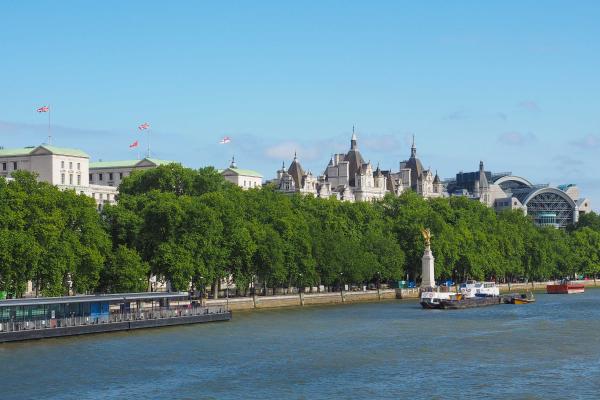Setting the scene
Recent events in Afghanistan have profound implications. The defeat of US/NATO/UK and the victory of the Taliban is akin to the humiliation of the Soviet Union in 1989. It is being depicted as a triumph of the Salafi-Jihadist ideology over foreign invaders, murderers of civilians, oppressors and torturers. It is an encouragement to celebrate and replicate this achievement elsewhere. Cash, coverage and recruits will flow to terrorists.
In the UK, the threat level could be raised to SEVERE or higher at short notice. This could surprise many except the most alert CSOs of major companies. This could occur at a time when counter-terrorism structures are in transition.
Speaking before the 20th Anniversary of 9/11, Ken McCallum, the Director General of the Security Service (MI5), warned that the Taliban takeover is likely to embolden extremists in Afghanistan and elsewhere. He highlighted the number of late-stage attacks that have been recently disrupted in the UK. Raffi Gregorian, Deputy Head of the UN Office of Counter-Terrorism (UNOCT), drew attention to the growing threat in Africa and warned that local terrorists may seek to emulate the Taliban success as they see it. Gregorian also mentions the unresolved issue of foreign terrorist fighters (FTFs) and women and children linked to them who are in camps in Syria and Iraq, often in dire conditions. Western governments have been persistently inactive in addressing these challenges. The result is that venues continue to exist where deep resentment festers and human suffering is exploited for terrorist propaganda.
Countering the threat
Against these cruel realities, the ‘use by date’ for the UK CONTEST strategy has expired. It was introduced in June 2018 with a ‘3-year horizon’ (Paragraph 22) and sets out plans and objectives up to 2021 (Paragraph 32). Previous CONTEST revisions have been no strangers to slippage.
UK CT resources remain static with Polyanna promises by government for reinforcement as needed. Oddly, there is no public information campaign to further the warning of Ken McCallum and to enhance public vigilance and preparedness.
The proposed PROTECT DUTY entered a consultation period of 18 weeks on 26 February 2021. The DUTY applies to specified owners and operators of public venues, large organisations and those responsible for public spaces. Many concerned bodies, including Resilience First, have submitted timely and constructive comments in response to the government invitation. Developments are awaited.
This may be connected with the gap in the post of Minister of State (Minister of Security) this year. The much-respected James Brokenshire stood down on 7 July for health reasons. No timely replacement was appointed. At one stage, the Home Office reportedly claimed that the Home Secretary would herself personally subsume this ministerial role. This prompted the Shadow Security Minister, Conor McGinn, to say: “Getting rid of a specific day-to-day senior government minister responsible for security and CT when Britain’s national security is under threat 24 hours a day, seven days a week, is an abdication of responsibility.” Damian Hinds was appointed Minister of State (Minister for Security) on 13 August. By ill fortune, this was two days before the fall of Kabul. He had been Education Secretary until 24 July 2019 but lost this job when Boris Johnson became PM. Hinds had campaigned to remain in the EU. Hinds was replaced by Gavin Williamson. In the cabinet reshuffle of 15 September, Damian Hinds’ new ministerial duties were extended to include borders as well as security. In present political circumstances, this does not bode well for a laser like focus on security.
In April 2021, the Home Office announced a new Head of the Office of Security and Counter Terrorism (OSCT), now the Office of Homeland Security. Chloe Squires replaced Tom Hurd who had held the post of DG OSCT since 2016 and had gained respect from both public and private sectors for his innovation. The new post holder is labelled as DG for Homeland Security. The ever-wise Sir David Omand has argued against the use of the homeland security concept in the UK context. He wrote: ‘That was a term not much liked in UK security circles who saw the creation of the giant US Department of Homeland Security as a precedent not to follow’. Twenty years of post-9/11 experience have vindicated Sir David’s wisdom.
The continuing dangers
In conclusion, it may be helpful to explain more fully why recent events in Afghanistan matter to the safety of UK citizens.
First, persons of malign intent all over the world who are the devotees of Salafi-Jihadist ideology and probably fervent on-line followers will be inspired to acts of violence in support of the cause. Fortunately, their attacks will be relatively ineffective, although even one casualty is a tragedy. Unfortunately, this has already started e.g. Auckland, New Zealand.
Secondly, the defeat in Afghanistan recreates a lawless zone where terrorists can plot mass casualty attacks. Al Qaeda and ISIS-K are prominent examples but Afghanistan is home to a panoply of unpleasant entities.
Thirdly, AQ and ISIS are established in many other lands and have the evil resources to attack at home and abroad. The clarion call of US defeat and retreat will be heard and acted upon.
Fourthly, there is the danger that terrorist groups of diverse labels will wish to make their mark on this new landscape and secure prominence in terms of reputation, support and, perhaps, novel attack methodology.
The most likely immediate danger to the UK is in the first category. This menace is underlined by the fact that the pandemic has had a limiting effect on terrorist travel, reconnaissance, preparation and targeting but all this activity is no longer suppressed. Indeed, the pandemic era has probably increased the time spent by malevolent actors perusing provocative terrorist material.



